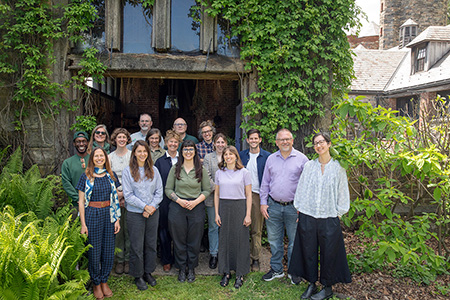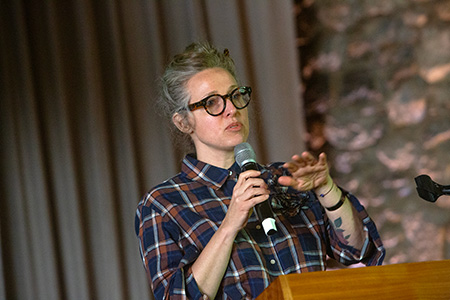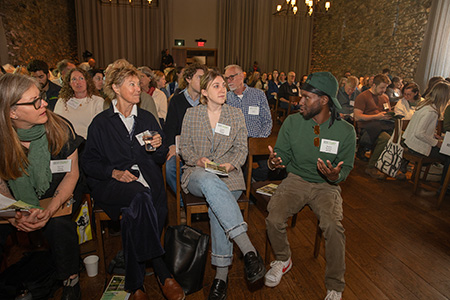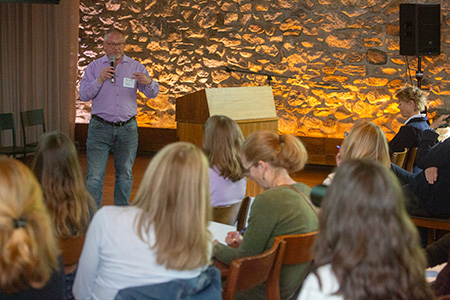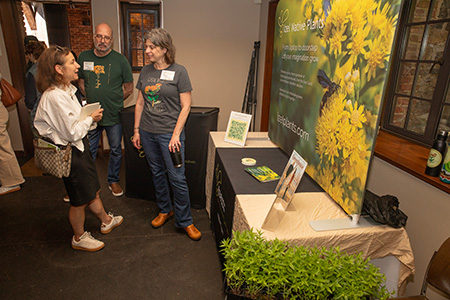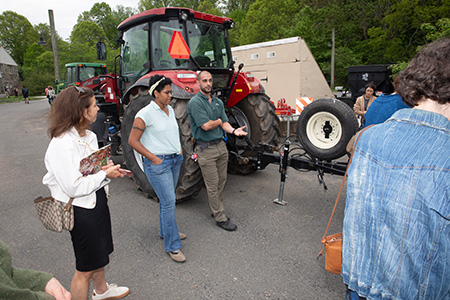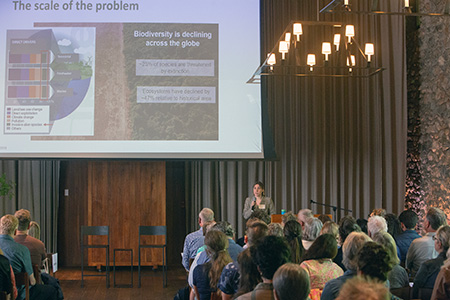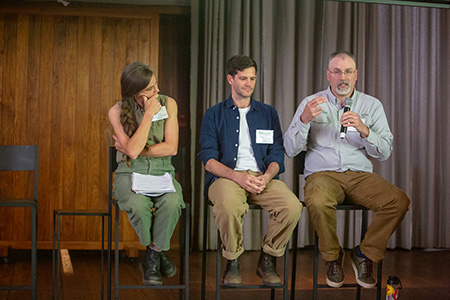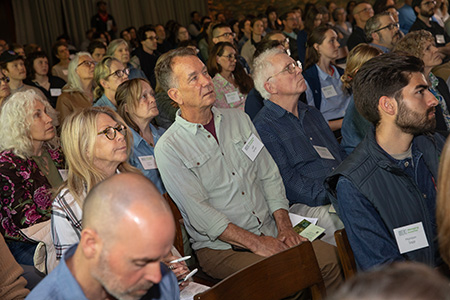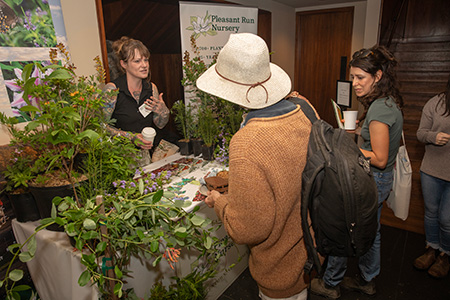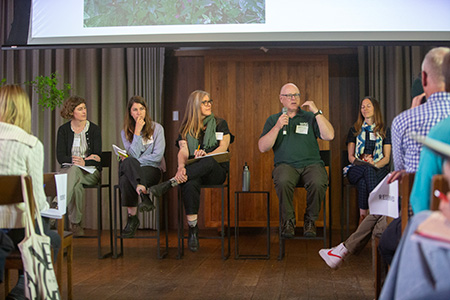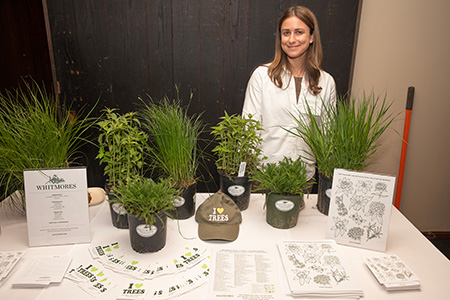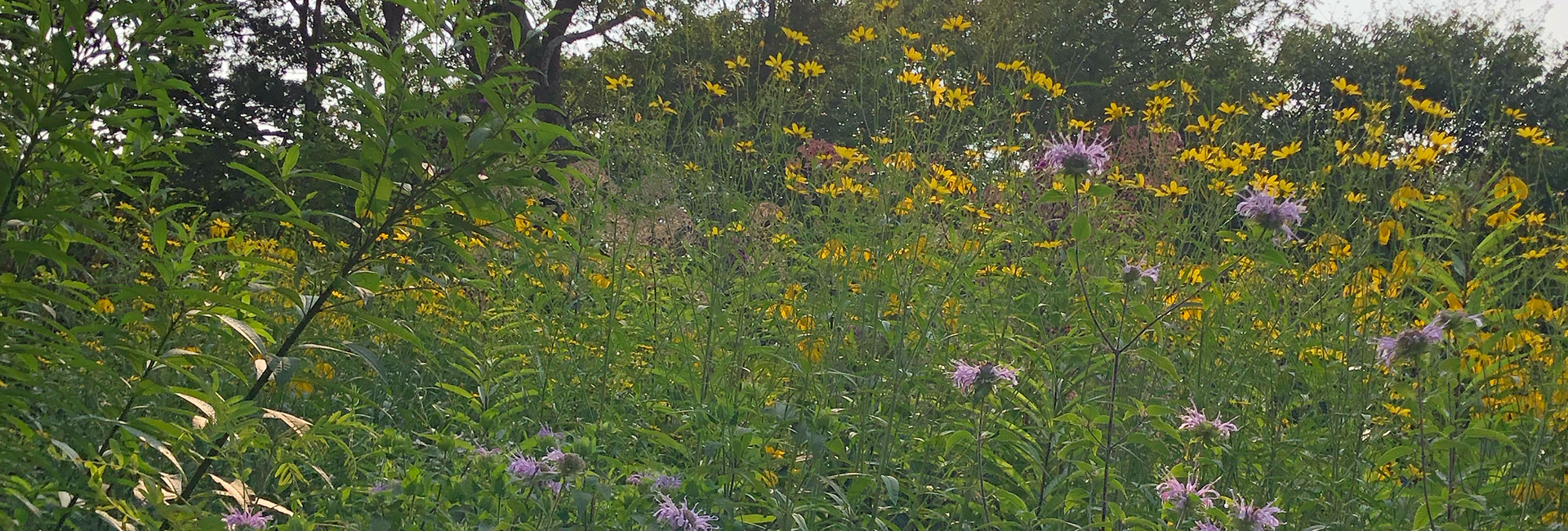Managing Invasives:
Mindful Ecological Approaches
Perfect Earth Project hosted Managing Invasives: Mindful Ecological Approaches, our second sold-out, day-long symposium on May 7, 2025 at Stone Barns Center for Food & Agriculture. As Perfect Earth founder, Edwina von Gal said in her introduction to the day, “Let’s create conditions that support life. It is not enough just to diminish our effect. We need to be—we can be—a contributing species apprenticed to nature’s equanimity.” The speakers shared advice on how to slow the spread of invasive plants that cause ecological harm and instead create biodiverse places of abundance and joy. Order access to the symposium video here. Learn more about invasives plants on our resources page. Photos by Gerard H. Gaskin.
Thanks to our Sponsors!
Platinum: Elkes Foundation, Piazza Horticultural, a nature-based branch of Whitmores
Gold: Field Studies Flora, Izel Native Plants, Pleasant Run Nursery, Stone Barns Center for Food & Agriculture
Silver: Bedford 2030, Compostwerks, The Garden Conservancy, Maranatha Farm, Plan it Wild, Scenic Hudson
Bronze: Avant Garden Designs, Jayni Chase, Grace Fuller Design, Hortulus Animae, Lady Farmer, The Native Plant Center at Westchester Community College, Pinelands Nursery, Society for Ecological Restoration–Mid-Atlantic Chapter, Susie’s Smart Cookie
Supporter: Glover Perennials, Green Jay Landscaping Design, Leslie Needham Design, Manitoga, Pennington Grey, Silva et Pratum
Thank you to our organizing committee!
Lower Hudson PRISM, The Native Plant Center at Westchester Community College, Partners for Climate Action Hudson Valley, Stone Barns Center for Food & Agriculture
Symposium Talks
Beyond Removal: Proactive Strategies for Protecting Ecosystems
Eve Beaury (Assistant Curator, New York Botanical Garden) and Rebecca McMackin (Lead Horticulturist, American Horticultural Society)
Protecting our ecosystems goes beyond just removing invasive plants-it requires proactive strategies to prevent their spread now and in the face of climate change. This includes removing harmful species from trade and refining how we communicate with the public. In this discussion, we’ll explore the collaborative, all-hands-on-deck approach needed to safeguard our landscapes, bringing together the public, commercial, and research communities to shape the ecosystems of the future.
Managing Mugwort: Four Strategies
Claire Davis (Owner, Starflower Gardens), Ashley Gamell (Owner, Studio Hopeland), Michael Hagen (Curator of the Rock Garden and Native Plant Garden, New York Botanical Garden), Sarma Ozols (Horticulture Supervisor, Trust for Governors Island), Mia Wendel-DiLallo (Owner, Seedhead Gardens), moderated by Julia Snook (Curator, Lenoir)
Mugwort (Artemisia vulgaris) is one of the most persistent invasive plants in the Northeast, spreading aggressively and resisting conventional control methods. This panel will explore four non-chemical management strategies-timed cutting, steaming, solarization, and smothering-through firsthand reports from practitioners who have implemented these techniques in the field. Panelists will share insights from their projects, discussing effectiveness, challenges, and practical applications for land stewards seeking to manage mugwort without herbicides.
Managing Woody Invasives: Four Strategies
Budd Veverka (Director of Land Management, Mianus River Gorge), Annabel Roberts-McMichael (Owner, Tend and Gather), Penn Marchael (COO/President, Pennington Grey), moderated by Rashid Poulson (Director of Horticulture, Brooklyn Bridge Park)
Woody invasive plants pose significant challenges to the ecological health of a landscape, often outcompeting native vegetation and altering habitat structure. This panel will highlight four non-chemical approaches to management: torching, forest mulching, hand removal, and deer pressure mitigation. Panelists will share their experiences applying these techniques in various landscapes, discussing effectiveness, timing, and site-specific considerations. Attendees will gain practical insights into how these methods can be integrated into broader invasive species management plans.
Managing Invasive Plants at Stone Barns: An Integrated Approach
Elijah Goodwin (Director of Ecological Monitoring, Stone Barns Center for Food and Agriculture)
Learn how Stone Barns uses livestock-particularly goats-alongside manual methods to suppress invasive plants while allowing native species to reestablish. This presentation will share research demonstrating that slow, repeated interventions leads to long-term stability, unlike quick-fix strategies that can invite reinvasion. It will also explore creative uses for harvested invasive plants, including culinary applications.
